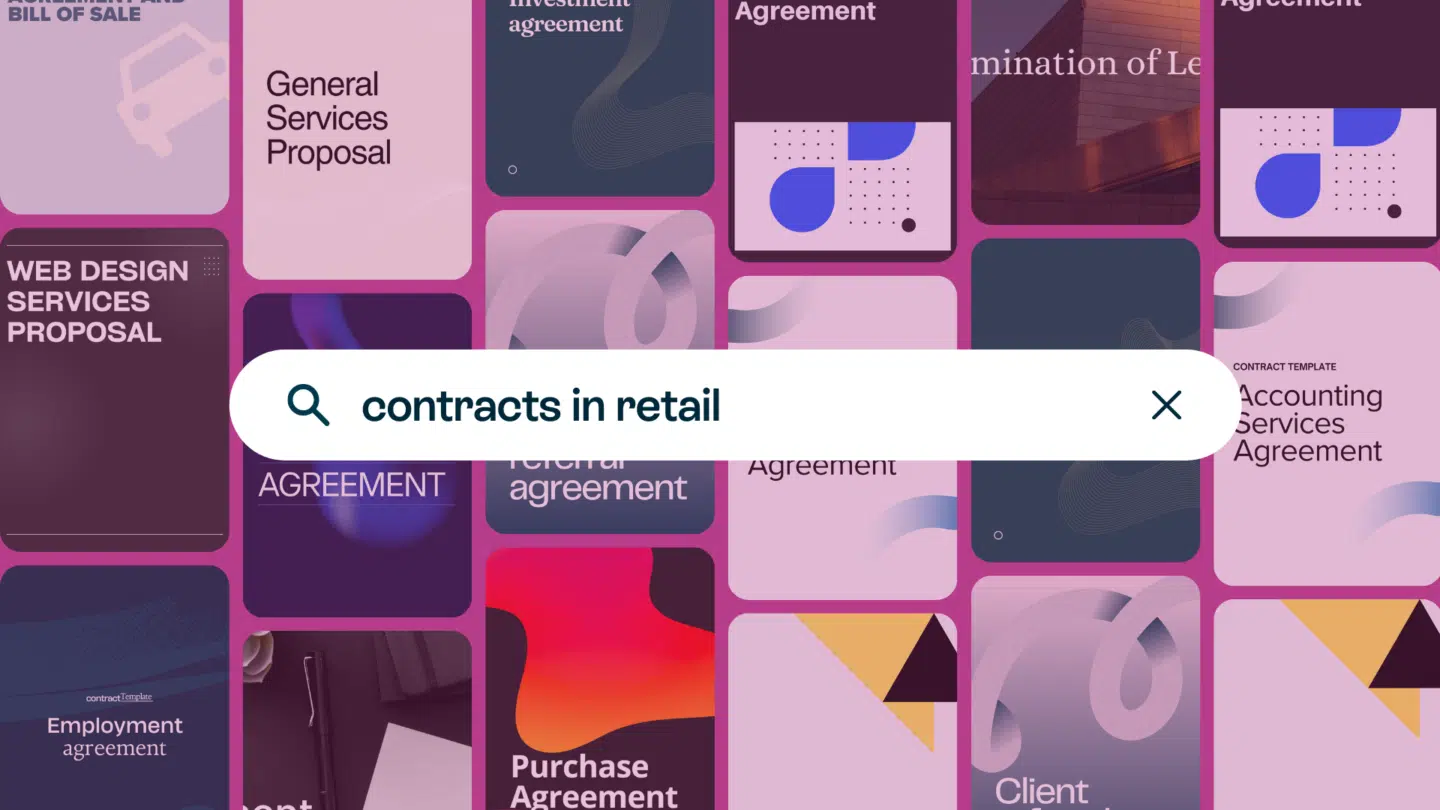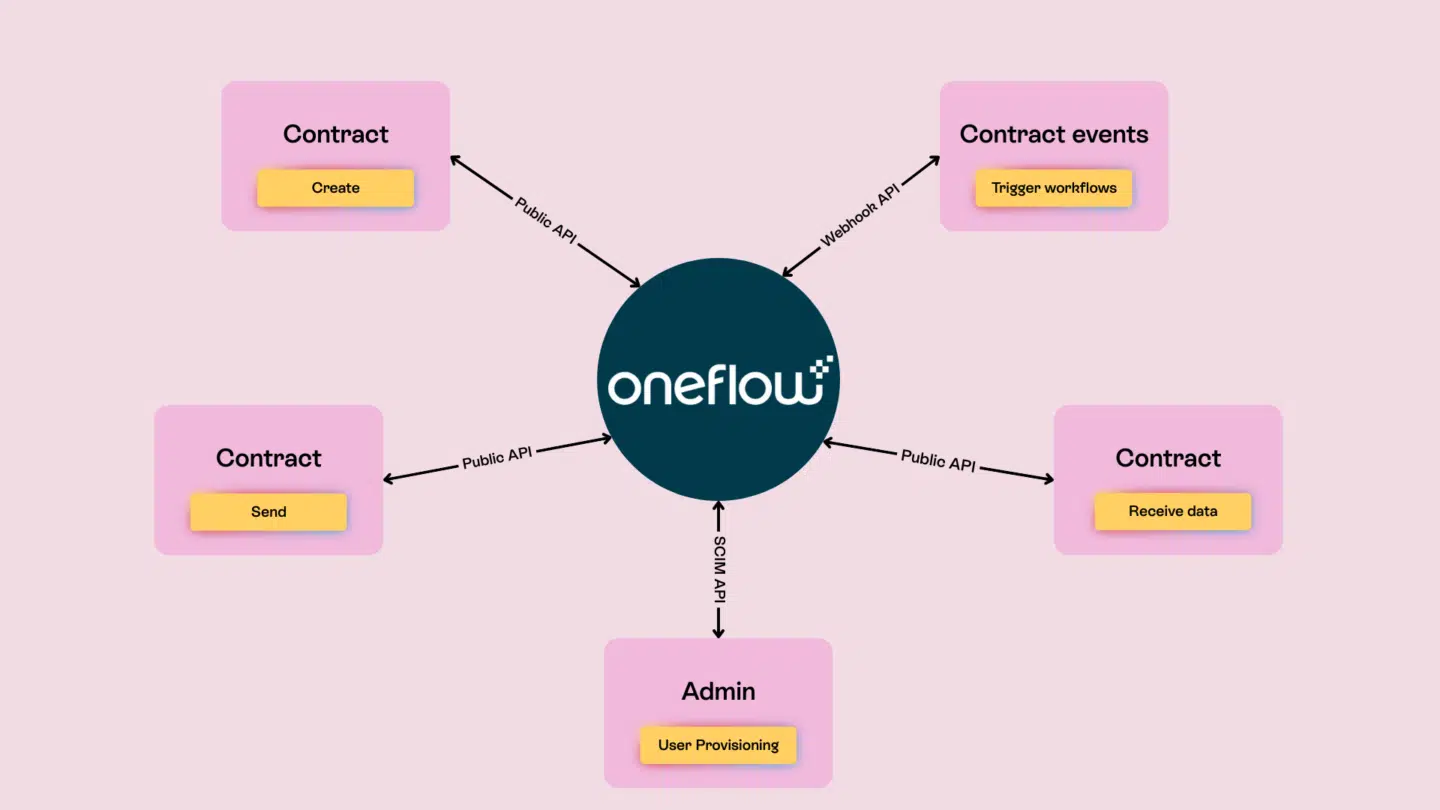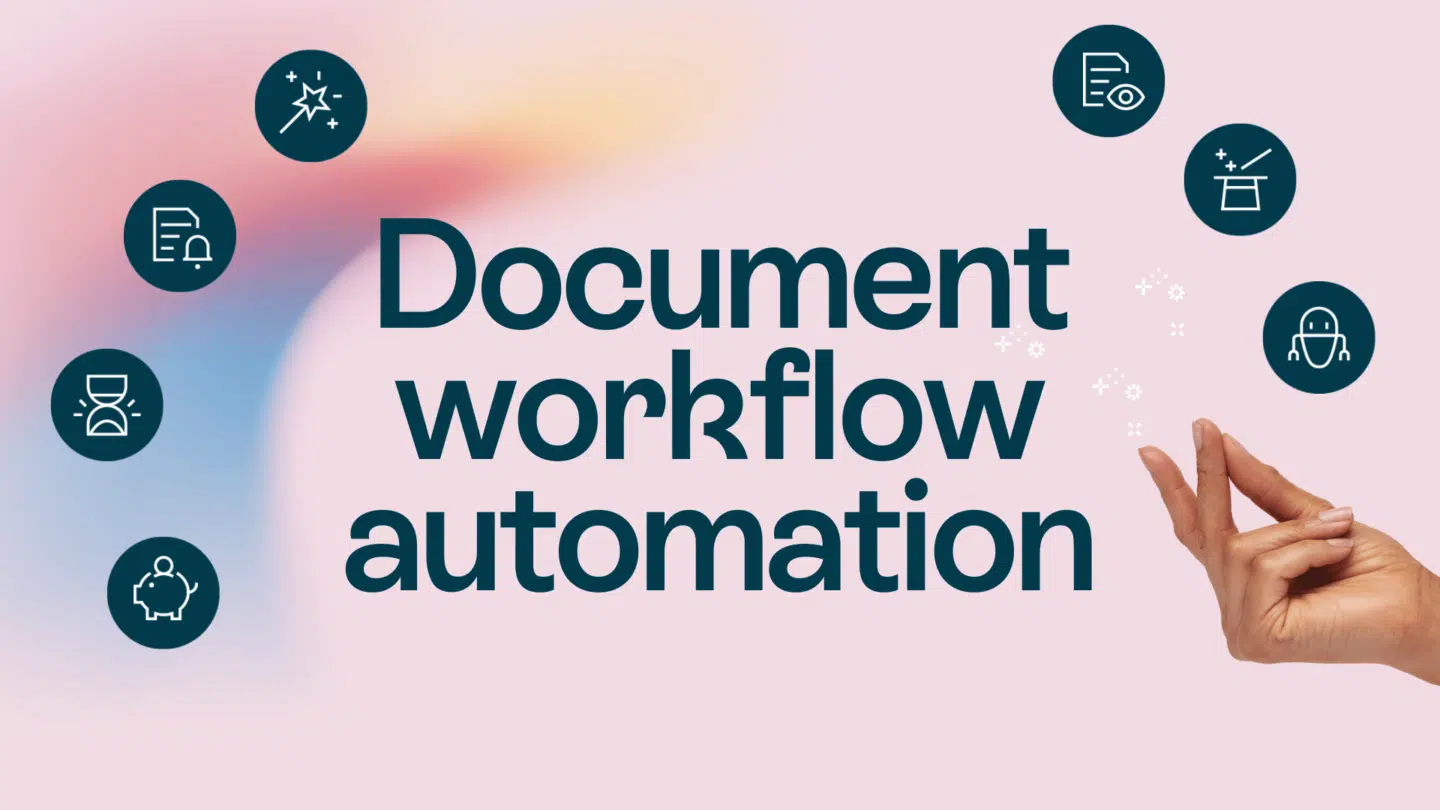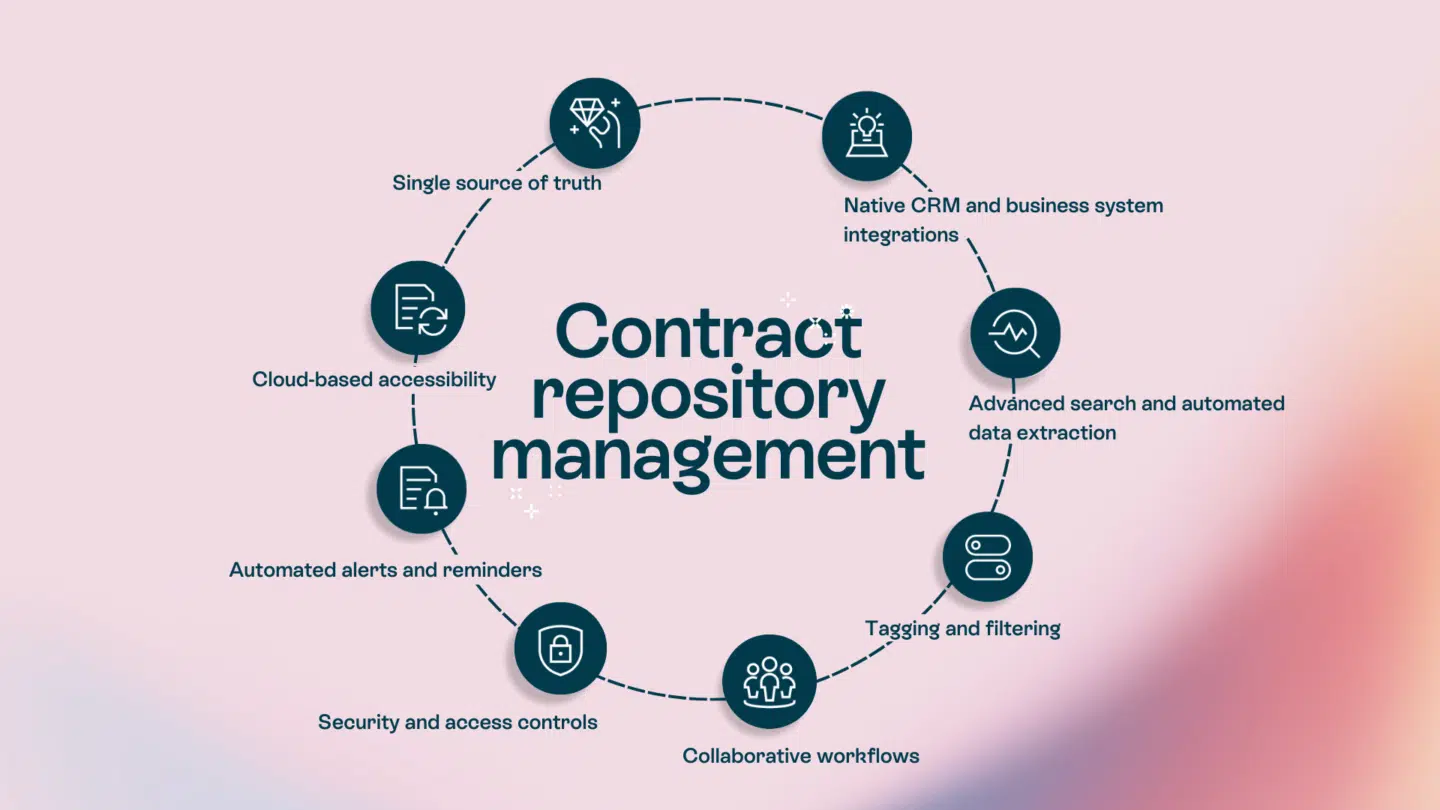Staying ahead in the retail industry means streamlining operations and focusing on customer experience. However, many retailers still rely on outdated, paper-based processes for managing contracts, which can slow them down. Digitizing contracts in the retail industry can save time, improve accuracy, and enhance collaboration across departments. Here, we explore the top 20 types of contracts in retail, explaining their purpose, key counterparties, importance, and example scenarios where they are typically signed.

1. Vendor Agreements
- What are they? Contracts outlining terms with suppliers or vendors providing products or services.
- Counterparties: Retailers and vendors.
- Why are they important? They ensure clear expectations, pricing, and delivery timelines for products or services.
- Example scenario: A retailer signs a vendor agreement with a supplier for seasonal inventory like holiday decorations.
2. Purchase Orders (POs)
- What are they? Legal documents confirming an order between a retailer and a supplier.
- Counterparties: Retailers and suppliers.
- Why are they important? They formalize purchase terms, ensuring clarity and accountability.
- Example scenario: A retailer issues a PO to a clothing supplier for a new summer collection.
3. Franchise Agreements
- What are they? Contracts between franchisors and franchisees, granting rights to operate under a brand name.
- Counterparties: Retail brands and franchisees.
- Why are they important? They define operational standards, branding, and revenue-sharing terms.
- Example scenario: A retail brand signs a franchise agreement with an entrepreneur to open a store in a new city.
Read also: All you need to know about digital signatures
4. Lease Agreements
- What are they? Contracts for renting retail spaces or storage facilities.
- Counterparties: Retailers and property owners.
- Why are they important? They secure locations for operations and define rental terms.
- Example scenario: A retailer signs a lease agreement for a prime storefront in a shopping mall.
5. Employment Contracts
- What are they? Agreements between retailers and their employees.
- Counterparties: Retailers and workers.
- Why are they important? They formalize roles, responsibilities, and compensation.
- Example scenario: A retailer hires a new store manager and signs an employment contract outlining their duties.
6. Non-Disclosure Agreements (NDAs)
- What are they? Contracts protecting confidential information.
- Counterparties: Retailers and employees, suppliers, or partners.
- Why are they important? They safeguard sensitive business information such as pricing or marketing strategies.
- Example scenario: A retailer signs an NDA with a marketing agency before discussing a new product launch.
7. Supplier Agreements
- What are they? Contracts with suppliers for the regular delivery of goods.
- Counterparties: Retailers and suppliers.
- Why are they important? They ensure steady inventory flow and set terms for pricing, quality, and delivery.
- Example scenario: A grocery chain signs a supplier agreement with a local farm for fresh produce.
8. Logistics Agreements
- What are they? Contracts for transportation and warehousing services.
- Counterparties: Retailers and logistics providers.
- Why are they important? They ensure efficient supply chain management.
- Example scenario: A retailer signs a logistics agreement with a freight company to handle cross-country deliveries.
9. Advertising and Marketing Agreements
- What are they? Contracts for promotional services, campaigns, or media placements.
- Counterparties: Retailers and marketing agencies or media companies.
- Why are they important? They establish campaign deliverables, budgets, and timelines.
- Example scenario: A retailer signs an agreement with an advertising agency to promote a new product line.
10. Merchandising Agreements
- What are they? Contracts specifying the terms for displaying and selling products in stores.
- Counterparties: Retailers and manufacturers or suppliers.
- Why are they important? They define placement, pricing, and promotions for products.
- Example scenario: A retailer signs a merchandising agreement with a beverage company for exclusive shelf space.

11. Consignment Agreements
- What are they? Contracts allowing retailers to sell products on behalf of suppliers or manufacturers, with payment upon sale.
- Counterparties: Retailers and suppliers.
- Why are they important? They reduce upfront costs for inventory.
- Example scenario: A boutique retailer signs a consignment agreement with a local artisan for handmade jewelry.
Read also: How to sign contracts online?
12. License Agreements
- What are they? Contracts granting rights to use intellectual property like brand names or designs.
- Counterparties: Retailers and licensors.
- Why are they important? They allow retailers to sell branded or licensed products.
- Example scenario: A retailer signs a license agreement to sell merchandise featuring a popular movie franchise.
13. Service Level Agreements (SLAs)
- What are they? Contracts defining service standards for IT or infrastructure providers.
- Counterparties: Retailers and service providers.
- Why are they important? They ensure accountability and high performance.
- Example scenario: A retailer signs an SLA with a point-of-sale system provider for 24/7 technical support.
14. E-commerce Platform Agreements
- What are they? Contracts for using online marketplaces or platforms to sell products.
- Counterparties: Retailers and e-commerce platform providers.
- Why are they important? They establish fees, terms, and operational guidelines for online sales.
- Example scenario: A small retailer signs an agreement to sell products on a major online marketplace.
15. Partnership Agreements
- What are they? Contracts outlining terms for collaborations with other brands or businesses.
- Counterparties: Retailers and partner companies.
- Why are they important? They enable joint promotions, events, or shared resources.
- Example scenario: Two retailers sign a partnership agreement to host a co-branded pop-up event.
16. Returns and Refund Policies
- What are they? Formal agreements detailing terms for customer returns and refunds.
- Counterparties: Retailers and customers.
- Why are they important? They build trust and ensure transparency.
- Example scenario: A retailer implements a digital returns policy, allowing customers to sign electronically for refunds.

17. Insurance Contracts
- What are they? Policies covering liability, property, or employee safety.
- Counterparties: Retailers and insurance providers.
- Why are they important? They protect against risks and unforeseen events.
- Example scenario: A retailer signs an insurance policy covering inventory damage during natural disasters.
Read also: How to write NDA agreement?
18. Affiliate Agreements
- What are they? Contracts with affiliates who promote and sell products for a commission.
- Counterparties: Retailers and affiliate marketers.
- Why are they important? They expand marketing reach without high upfront costs.
- Example scenario: A retailer signs an affiliate agreement with a blogger to promote their products online.
19. Waste Disposal Agreements
- What are they? Contracts for managing waste from retail operations.
- Counterparties: Retailers and waste management companies.
- Why are they important? They ensure sustainability and compliance with environmental regulations.
- Example scenario: A retailer signs a waste disposal agreement with a recycling company for cardboard and plastic packaging.
20. Joint Venture Agreements
- What are they? Contracts for collaborative projects between retailers or other businesses.
- Counterparties: Retailers and partner companies.
- Why are they important? They enable shared investments and resources for new ventures.
- Example scenario: Two retailers sign a joint venture agreement to open a shared flagship store in a major city.
Conclusion
In the retail industry, contracts play a vital role in ensuring smooth operations, building trust, and fostering growth. Digitizing these contracts not only saves time but also improves accuracy and collaboration. By adopting digital solutions for these 20 common contract types, retailers can streamline their operations and gain a competitive edge in the market.
Disclaimer:
All information on this page is derived from publicly available sources. Oneflow does not verify the accuracy, completeness, or currentness of this information. Accordingly, Oneflow assumes no responsibility or liability for any inaccuracies, errors, or omissions in the content, nor for any actions taken in reliance on such information. Users are advised to independently verify any information before making decisions based on it.








